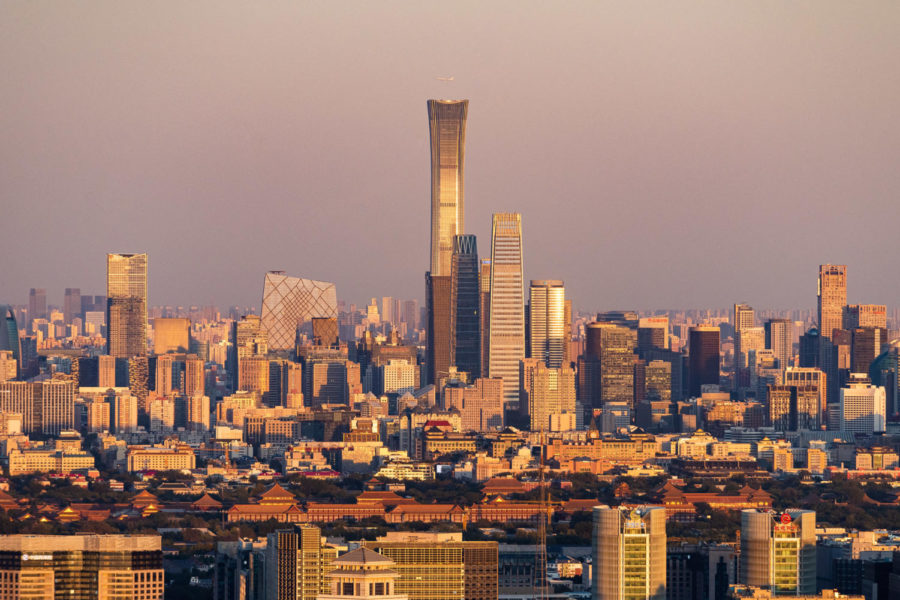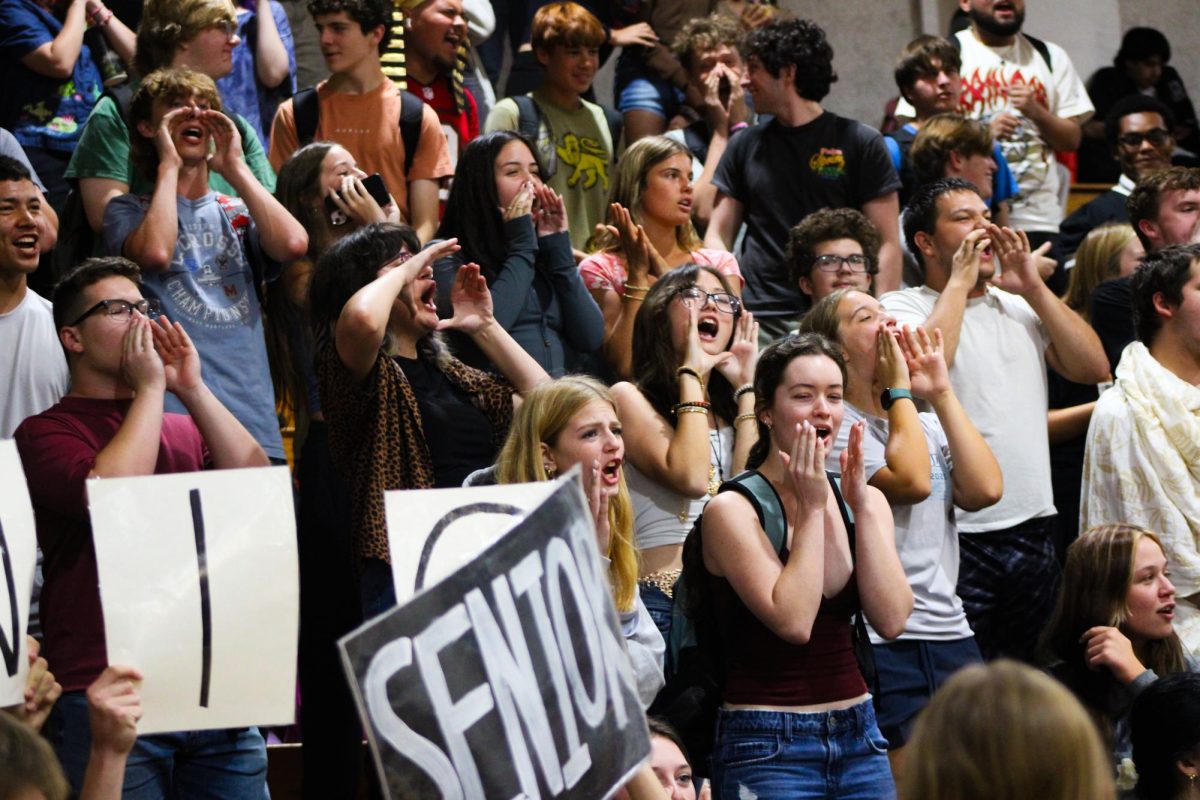The 2022 Winter Beijing Olympics should’ve never happened
And we’ve done a pretty terrible job of speaking out against it, too.
Photo Creative Commons
Skyline of Beijing, the city in which the 2022 Winter Games are being held.
February 8, 2022
Recently, the 2022 Winter Olympics in Beijing, China has come under criticism by some groups and news outlets due to the country’s “human rights violations”.
“Human rights violations” is kind of euphemistic. While it isn’t as blatant as widespread murder and systematic killings, China’s government is still imprisoning Uyghurs in internment camps, suppressing religious services with violence and forcing contraception, abortion and sterilization. All of these actions are specified as genocide under the UN’s Genocide Convention (see Article II). The Uyghurs in question are a Muslim minority group largely localized in the Xinjiang area of Northwest China, where they are native. The acts in question have been reported going as far back as 2014.
Many might ask, if the world has known about these injustices since 2014, why wasn’t anything done about it? Well, it’s a bit more complicated than that. Though the main issue is foreign interests, China is a major player in the world economy. So, a lot of countries have been hesitant to put sanctions onto them. Not only that, but countries who are doing horrible things generally don’t like the world to know they’re doing them. As such, it was only until ~2017 when the event gained wide coverage by news outlets and social media. Denying China the World Olympics would have been a good way to do at least something, but given how news outlets are already ramping up coverage for the games it looks like that won’t be the case.
Really, it’s quite surprising that there hasn’t been any backlash long ago. For those who don’t know, the decision to host the Olympic games happens far in advance—to put this in perspective, we’ve already decided that Brisbane, Australia will host the 2032 summer games. China put in a bid to host the 2022 Winter Olympics way back in late 2013, and were selected to host the games in early 2015. For the past seven years, the situation in Xinjiang has progressively gotten worse and more widely known, yet the height of backlash has only been reached within the last couple of months.
This sluggishness results in a bit of a problem, as by now it’s incredibly difficult to stop the games from going on. Hosting the Olympic Games requires a huge amount of investment and infrastructure, and to take that away last minute would probably cause some controversy to fall upon the IOC (International Olympic Committee). Nevertheless, we are talking about genocide here, so this isn’t really something that can be ignored with a wave of a hand.
Personally, since I’m not a member of the IOC, or the UN, or a leading official in the CCP, I can’t really do much. I can, however, and I implore the readers of this to the same: boycott. Simply not watching the games is enough to make an impact, if enough people do it. Low ratings and viewership mean coverage of the games wouldn’t be profitable, meaning networks would pull coverage of the event. Without news coverage, the games themselves wouldn’t be profitable, and sentiment would generally turn against the holding of the games in Beijing. That all relies on a mass movement of interest, which is unlikely, however.
But action or not, the complicity the world has given the 2022 Olympic Games, and the actions committed by China thus far, will remain a dark spot on world affairs and ethics for years to come.











